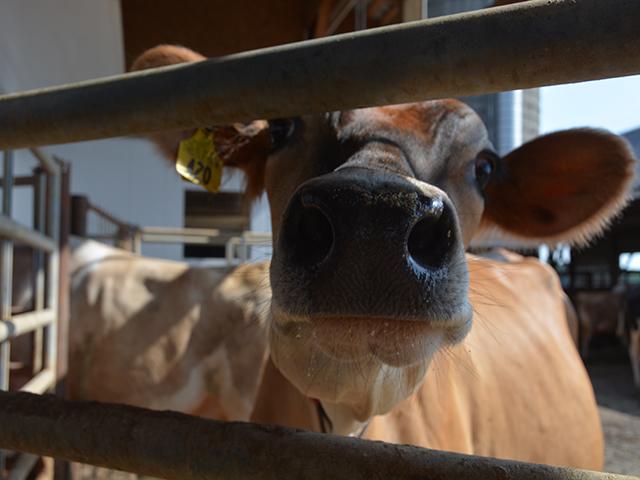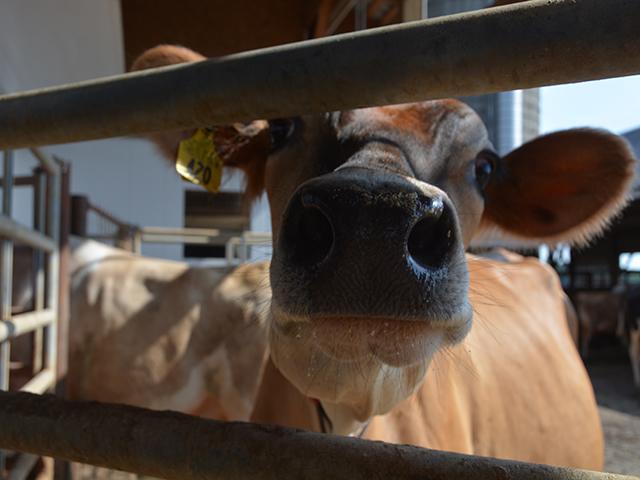Ag Policy Blog
USDA Sets Hearing to Change Federal Milk Marketing Order (FMMO)
USDA will hold a hearing on proposals to amend the pricing formulas in the 11 Federal Milk Marketing Orders (FMMOs) on August 23.
Rather than offering some industry consensus, the National Milk Producers Federation (NMPF, which represents dairy farmers and co-ops, and the International Dairy Foods Association (IDFA), which represents dairy processors, have offered different proposals while the organic dairy industry is disappointed their plan to be excluded from the system isn't part of the discussion.
NMPF Board Chairman Randy Mooney, a dairy farmer from Rogersville, Mo., said, "Dairy farmers nationwide are grateful that USDA is moving forward by including the full scope of NMPF's proposal to guide the dairy industry forward as it modernizes the Federal Milk Marketing Order system.
"This recognition of NMPF's consensus-based leadership allows us to continue the substantial momentum for change that we've achieved. Each piece of our proposal, from returning to the 'higher of' Class I mover as soon as possible, to updating both Class I price differentials and manufacturing cost allowances, has been crucial toward building that consensus, and all components of our plan are critical to a successful update to this important program.
"There is still a long journey ahead toward a modernized federal order system that works better for farmers, but NMPF is ready, with co-op led efforts well under way to ensure that we are well-prepared for the FMMO hearing that begins next month. We're excited to lead this industry toward solutions that will offer benefits for everyone, and we are gratified that USDA is showing thoughtful leadership through its responsiveness and support for dairy."
IDFA Chief Economist Mike Brown said, "The International Dairy Foods Association and our members are fully prepared to participate in the Federal Order hearing, where we plan to provide compelling, fact-based arguments supporting IDFA's two proposals that were crafted in the best interest of the full dairy supply chain. We are grateful that both of IDFA's proposals were accepted by USDA as part of the hearing.
"We go into this process with the same goal we've had all along -- unify the industry around ideas that are in the best interest of the full dairy supply chain. IDFA members across the dairy industry want to see milk pricing policies that support all parts of the supply chain, to ensure the industry's continued success and growth. That is why IDFA submitted two proposals -- one requesting USDA to update make allowances which are woefully out of date after nearly 20 years, and a second proposal on Class I milk that allows our members to manage risk effectively while putting more dollars into the pockets of dairy farmers over time than they would receive under the 'higher of' mover proposal.
"We're pleased to see the department move forward with the Federal Order hearing, and we fully expect UDSA will ensure all voices are heard, all proposals and presentations are fact based, and the staff at USDA are working in the best interest of the full dairy supply chain rather than just one set of constituents."
Agriculture Secretary Tom Vilsack had asked the dairy industry to reach consensus before submitting proposals, but NMPF and IDFA could not reach agreement.
SOME HISTORY
The Federal Milk Marketing Order goes back to the Depression era. Dairy farmers went to Congress seeking to offset the imbalance of power from having a lot of dairy farmers, but few buyers. The FMMO was born.
P[L1] D[0x0] M[300x250] OOP[F] ADUNIT[] T[]
The purpose of the FMMO is to ensure an adequate national supply of fresh and wholesome milk for fluid consumption. The FMMO is also supposed to ensure dairy farmers have stable and reliable milk markets as well. The system ensures minimum prices through pooling, as well as accurate payments, weights and testing.
There are actually 11 federal orders around the country, based on region, though there are also large sections of milk production not under the FMMO.
The FMMO does not regulate producers, but regulates Class I milk handlers -- processors that sell fluid milk products. Those processors are the only ones USDA's AMS regulates 100% of the time. Nearly 95% of fluid milk nationally is covered by a federal order, while a few state orders cover the rest.
Less milk falls under the FMMO as the dairy industry changes. Of total milk production, less than 61% in 2021 was part of a federal order, down from nearly 72% back in 2019.
Essentially, more dairy production is going into processing other than the fluid milk market. There also is a wider gap regionally as dairy farmers in the upper Midwest, for instance, send more of their milk to cheese processors rather than fluid-milk markets.
Class, II, III and Class IV dairy processors -- makers of cheese, butter or other dairy manufactured products -- are only part of the FMMO if they elect to participate in the program. As of 2021, only about 52% of non-fluid milk processing is covered by a federal order. These processors can jump in and out of the system, however.
ORGANIC INDUSTRY CONCERNS
The Organic Trade Association said that organic dairy farmers are "disappointed" that USDA's plan does not include their proposal to exempt organic dairy products from the system or otherwise explore the organic dairy industry's challenges.
"OTA was disappointed to see the FMMO hearing notice not mention the proposal to address the unfair burden placed on the organic dairy sector, especially after the inroads this administration has made on taking measures to address the unique needs of the organic agricultural marketplace," a spokesperson said. "Our members and organic dairy producers, processors and customers need to hear from the USDA on why these vital proposals were not included."
Earlier this month, a coalition of 24 organic dairy farmers from across the country sent Agriculture Secretary Tom Vilsack a letter urging that he "ensure the proposal calling for an Organic Exemption is included in any Federal Milk Marketing Order (FMMO) national hearing."
OTA, which represents the broader organic industry, also sent AMS Administrator Bruce Summers a letter urging that either an exemption or other program for organic dairy be considered in the hearing process.
Organic dairy farmers say their product is distinct from conventional milk, and in the letter to Vilsack they said, "Yet the reality is the Federal Order rules and requirements impact our farm gate milk price by burdening us and our organic dairy buyers with pool payments that go overwhelmingly to non-organic producers."
The August 23 hearing will be held in Carmel, Ind., at the 502 East Event Centre beginning at 9 a.m. Eastern, but it is expected to be the first of several hearings on the topic.
Federal Register -- Milk in the Northeast and Other Marketing Areas; Notice of Hearing on Proposed Amendments to Marketing Agreements and Orders https://public-inspection.federalregister.gov/…
DTN Ag Policy Editor Chris Clayton contributed to this report.
Jerry Hagstrom can be reached at jhagstrom@nationaljournal.com
Follow him on Twitter @hagstromreport
(c) Copyright 2023 DTN, LLC. All rights reserved.






Comments
To comment, please Log In or Join our Community .